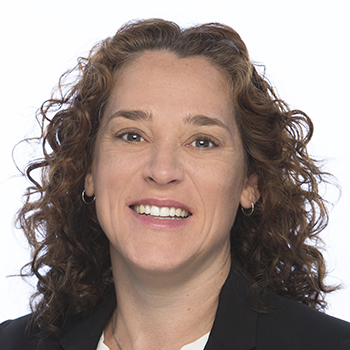
"You can’t have diversity without inclusion, and we need a lot more of both in the AI ecosystem."

Elissa Strome
Executive Director of Pan-Canadian Artificial Intelligence Strategy at CIFAR
Speaking on a recent RBC LinkedIn Live ‘Diversity in AI’ panel moderated by Natasha Kassim, Director of Diversity and Inclusion at RBC, CIFAR’s Dr. Elissa Strome joined Dr. Eirene Seiradaki, Director of Research Partnerships at RBC Borealis, to talk about the diversity gap in the AI and ML industry, to share ideas to help close the gap, and to explore some of the programs they are creating and leading to drive greater diversity and inclusion in the sector. Here are some of the highlights from that panel discussion.
The future of AI in Canada is diverse.
Given the ubiquitous role AI currently plays in our personal and professional lives, the field of AI must include as many voices and perspectives as possible.
"Canada is a huge and diverse country that offers great diversity, but this also means that not everyone has equal access to AI training and education. We need to start unlocking the field of AI for people from an early age to help encourage diversity in Canada’s future AI talent." "We don’t want bias in our algorithms."

Eirene Seiradaki
Director of Research Partnerships, RBC Borealis
Advancing diversity – including geographical diversity – would go a long way to increase the responsible adoption of AI.
In 2019, estimates suggested that around 1-in-5 tech workers were identified women, while fewer than 2% of Canadian tech workers surveyed identified as Indigenous (1). There’s a pressing need to get better at collecting data to capture the scope of the problem so that the AI ecosystem can develop better and more tailored solutions and measure progress.
"We need to think about how we collect good data around diversity and inclusion in AI, without it, we can't measure the impact of the changes we are making and the initiatives that we have."
argued Elissa Strome.
Diversity in AI is critical to ensure that machine learning models are fair and unbiased.
RBC and RBC Foundation have recently announced a transformative donation to CIFAR to help advance the understanding of AI’s impact on society, ensure a more diverse representation of scientific talent across CIFAR’s research programs and support research to create a more sustainable environment.
As part of the ongoing partnership, RBC Borealis’s new Let’s SOLVE it mentorship and societal impact initiative will become part of a suite of training programs that CIFAR has launched across Canada, called CIFAR’s NextGen AI Training Programs. Like many other top-tier training programs at CIFAR, Let’s SOLVE it aims to develop the next generation of Machine Learning talent. With a focus on diversity, Let’s SOLVE it encourages applications from undergraduate students enrolled in a wide variety of Canadian academic institutions and programs and underrepresented groups in AI to solve real problems in their communities using machine learning (ML).
"We've been privileged to partner with wonderful organizations to deliver training programs and help young people develop AI skills and expertise at all levels."
noted Elissa Strome.
A wide range of programs aim to make AI more accessible for all, but more needs to be done.
The panel highlighted several programs to break down barriers, improve access, and drive inclusion. CIFAR, for example, has partnered with Simon Fraser University on a program called Invent the Future which targets high school-aged women. Together with RBC Borealis, they also support the AI4Good Lab, that focuses on undergraduate women.
Recognizing the significant barriers facing Indigenous students, CIFAR has recently launched a program developed with the advice of community leaders and scientists aimed at increasing the participation of Indigenous students in the field of AI.
"CIFAR is pleased to cover the full costs of participation of Indigenous students in any of our partnered AI training programs. We are also working with Indigenous and STEM education leaders to develop pilot programs and curricula that incorporate Indigenous knowledge and experience into how we teach AI."
added Elissa Strome.
RBC Borealis also is interested in building diversity and inclusion in the global AI ecosystem. For example, last November, the organization was a Diversity and Inclusion sponsor at the EMNLP 2021 conference and supported the Women in Machine Learning Workshop at the 2021 NeurIPS Conference.
What can your organization do to advance diversity and inclusion?
What do you do to improve diversity and inclusion at your organization? It will take a village, and every program, study, initiative, and project can make a real difference, helping shape the future of AI in Canada. The panel wrapped up with the speakers challenging everyone who tuned in to do more to help solve these critical issues and make AI more accessible to all.
If you missed the event, please check out this recording and share it widely to help raise awareness and advance diversity and inclusion in AI.
References
(1) Lamb, Creig; Viet Vu and Asher Zafar (2019) “Who Are Canada’s Tech Workers?” Brookfield Institute for Innovation + Entrepreneurship.
News
Northern Frontier: In conversation with Prof. Balaraman Ravindran
News
Breaking Down Silos with Responsible AI
News